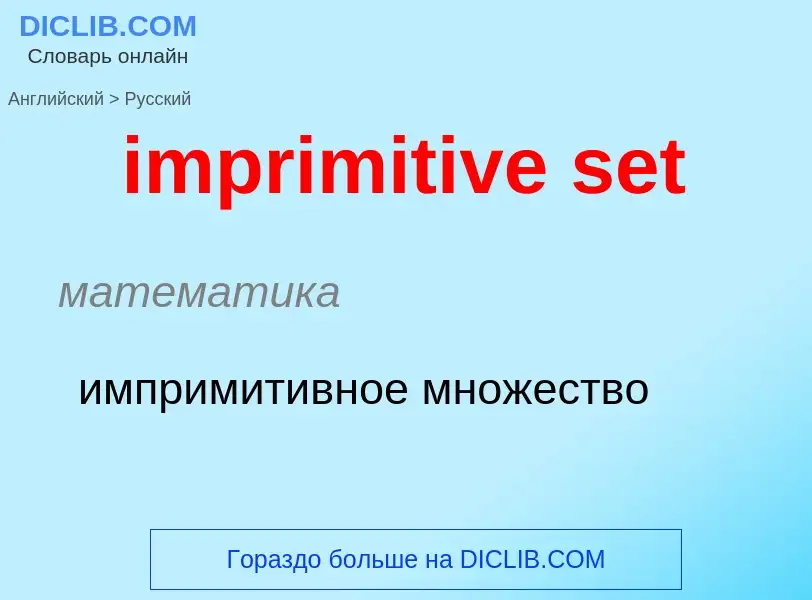Tradução e análise de palavras por inteligência artificial ChatGPT
Nesta página você pode obter uma análise detalhada de uma palavra ou frase, produzida usando a melhor tecnologia de inteligência artificial até o momento:
- como a palavra é usada
- frequência de uso
- é usado com mais frequência na fala oral ou escrita
- opções de tradução de palavras
- exemplos de uso (várias frases com tradução)
- etimologia
imprimitive set - tradução para russo
математика
импримитивное множество
математика
конечное подмножество
Wikipédia
In mathematics, a permutation group G acting on a non-empty finite set X is called primitive if G acts transitively on X and the only partitions the G-action preserves are the trivial partitions into either a single set or into |X| singleton sets. Otherwise, if G is transitive and G does preserve a nontrivial partition, G is called imprimitive.
While primitive permutation groups are transitive, not all transitive permutation groups are primitive. The simplest example is the Klein four-group acting on the vertices of a square, which preserves the partition into diagonals. On the other hand, if a permutation group preserves only trivial partitions, it is transitive, except in the case of the trivial group acting on a 2-element set. This is because for a non-transitive action, either the orbits of G form a nontrivial partition preserved by G, or the group action is trivial, in which case all nontrivial partitions of X (which exists for |X| ≥ 3) are preserved by G.
This terminology was introduced by Évariste Galois in his last letter, in which he used the French term équation primitive for an equation whose Galois group is primitive.


